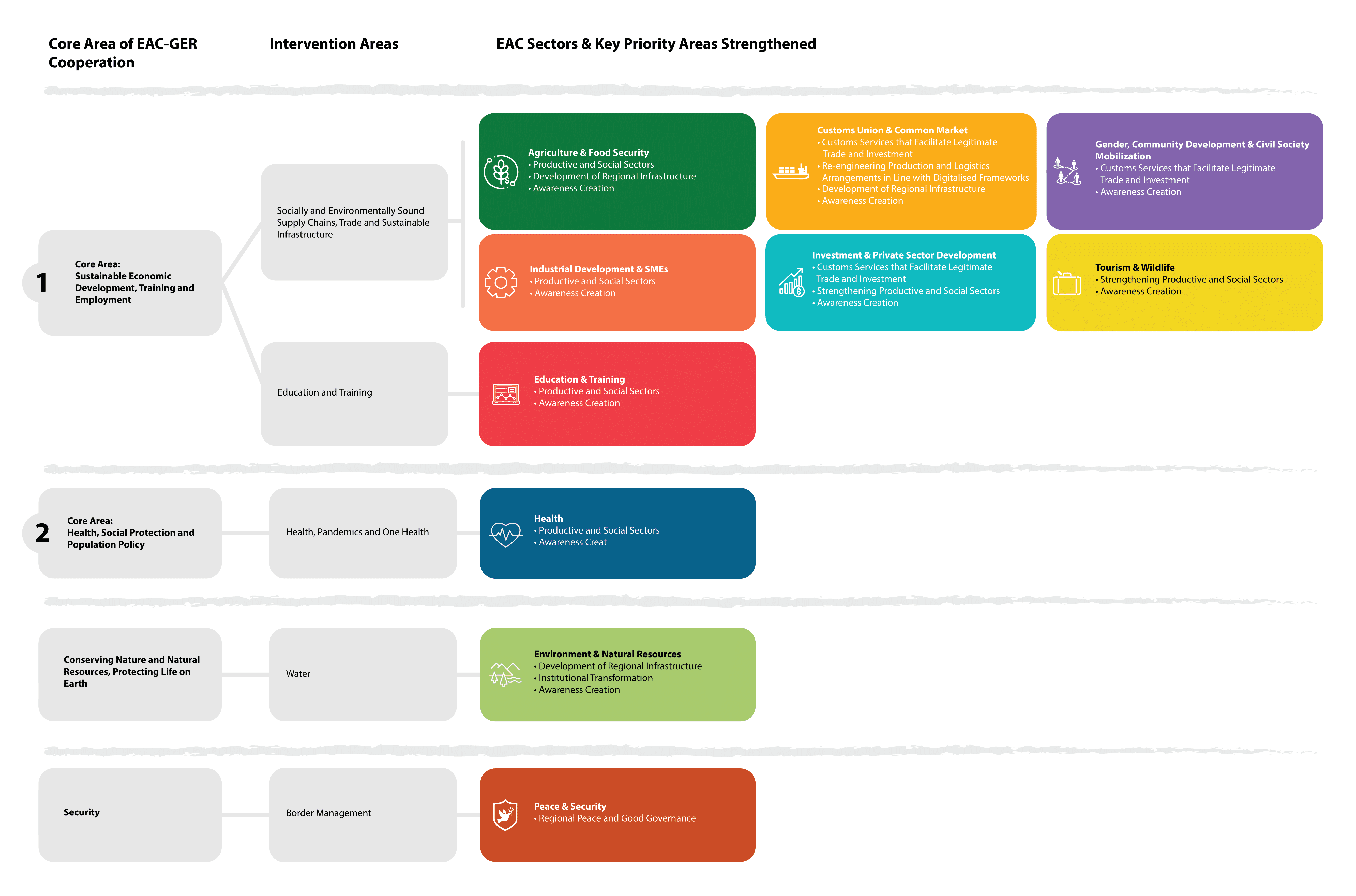The East African Community (EAC) and Germany are united by a long history of cooperation that predates the re-establishment of the East African Community (EAC) in 2000. The German government has supported the East African integration since 1999, based on the common understanding that regional integration will improve the social and economic development of EAC Partner States. Since then, Germany has committed more than 580 million euros for development cooperation with the EAC, making Germany one of the biggest and most reliable bilateral development partners of the community.
According to the reform process "BMZ 2030" at the German Federal Ministry for Economic Cooperation and Development (BMZ), the cooperation sectors of EAC-German Development Cooperation are denominated as follows:
1) Core Area 1: Sustainable Economic Development, Training and Employment
- Area of Intervention 1: Socially and Environmentally Sound Supply Chains, Trade and Sustainable Infrastructure
- Area of Intervention 2: Education and Training
2) Core Area 2: Health, Social Protection and Population Policy
- Area of Intervention: Health, Pandemics and One Health
3) Cooperation outside the Core Areas: Conserving Nature and Natural Resources, Protecting Life on Earth
- Area of Intervention: Water
4) Cooperation outside the Core Areas: Security
- Area of Intervention: Border Management
“Digital Technology and Data”, “Ecosystem Restoration and Nature-Based Solutions” and “Managing Climate Risks/Climate-Related Losses and Damages” are considered initiative areas of German Development Cooperation. They are reflected as cross-cutting topics in the EAC-German Cooperation.
This translates into support to the following EAC Sectors as defined by the 6th EAC Development Strategy: 1) Agriculture & Food Security 2) Customs Union & Common Market 3) Education & Training 4) Environment & Natural Resources 5) Gender, Community Development & Civil Society Mobilization 6) Health 7) Industrial Development & SMEs 8) Investment & Private Sector Development 9) Peace and Security 10) Tourism & Wildlife
The joint projects in the EAC sectors mentioned above are directly contributing to implement seven out of the eight priority areas defined by the 6th EAC Development Strategy, namely: 1) Strengthening Regional Peace and Good Governance 2) Customs Services that Facilitate Legitimate Trade and Investment 3) Strengthening Productive and Social Sectors 4) Re-engineering Production and Logistics Arrangements in Line with Digitalised Frameworks 5) Development of Regional Infrastructure 6) Institutional Transformation 7) Awareness Creation
All of our projects are implemented by the German implementing organisations for Technical Cooperation GIZ and PTB, or KfW the German Development Bank, implementing our Financial Cooperation – jointly with the EAC Secretariat, EAC Institutions and other implementers.
